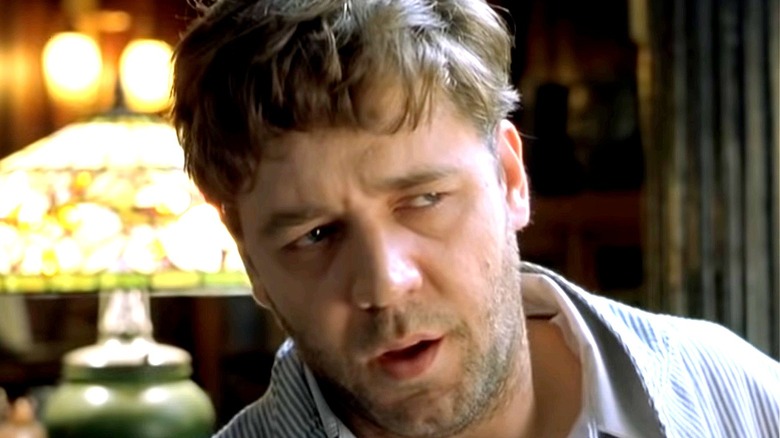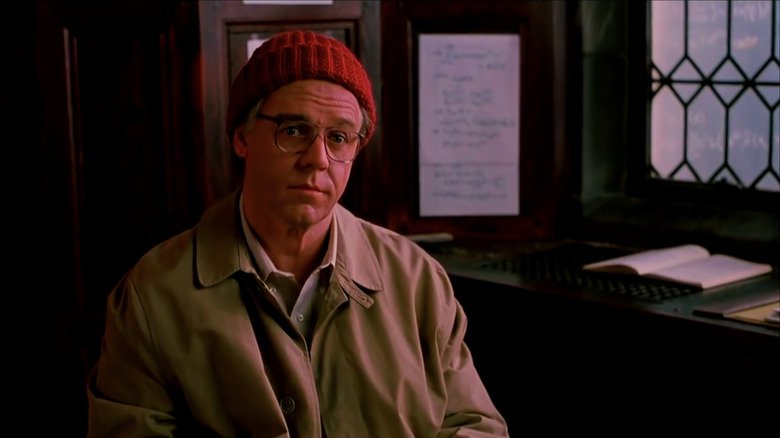Is A Beautiful Mind Based On A True Story?
There's something inherently fulfilling about watching a film that claims to be based on a true story, and those claims usually pique the interest of the audience just a little bit more than pure fiction. Movies with darker themes are just one great example of when the words "based on a true story" both draw attention and keep the story alive for decades, such as the story of "The Amityville Horror" which has been made into several different motion pictures (via IMDb). Horror isn't the only movie genre that does this effectively, though, and oftentimes "based on a true story" films are much closer to everyday life.
The movie "A Beautiful Mind," directed by Ron Howard and released in 2001, is a perfect example of a movie that is inspiring, heartbreaking, and attention-grabbing. It tells the story of John Forbes Nash Jr. (Russell Crowe), a mathematician who won a Nobel Prize for his work and led a life as an acclaimed part of the mathematical community while facing his own adversity. But is this movie based on a true story?
A Beautiful Mind was inspired by the true life story of John Nash
The movie "A Beautiful Mind" follows a portion of John Forbes Nash Jr's life. Nash was, in fact, a real person, and the movie is inspired by his actual life and the events that took place within a specific timeframe. Nash was a true mathematical genius, and his work on economics, game theory, and the mathematics of decision making earned him a Nobel Prize in 1994 (via Nobel Prize). Nash obtained a Ph.D. from Princeton University and spent much of his career within that vicinity as well as at the Massachusetts Institute of Technology.
The movie mainly takes place after Nash married his wife Alicia Nash (Jennifer Connelly) in 1959 and began exhibiting symptoms of schizophrenia which he described as "mental disturbances," according to Scientific American. After years of dealing with his symptoms, Nash learned how to coexist with them and eventually returned to teaching and winning the Nobel Prize. The Nash Equilibrium is a foundational tenet of economics education to this day.
His story continues to inspire millions within the academic community as well as those dealing with adversity in their own life. The movie certainly dramatized many aspects of what Nash experienced and was criticized for doing so, but director Ron Howard said that he "never set out to make a biopic." But the film still serves as an incredible telling of a life so extraordinary, it couldn't have been made up.

